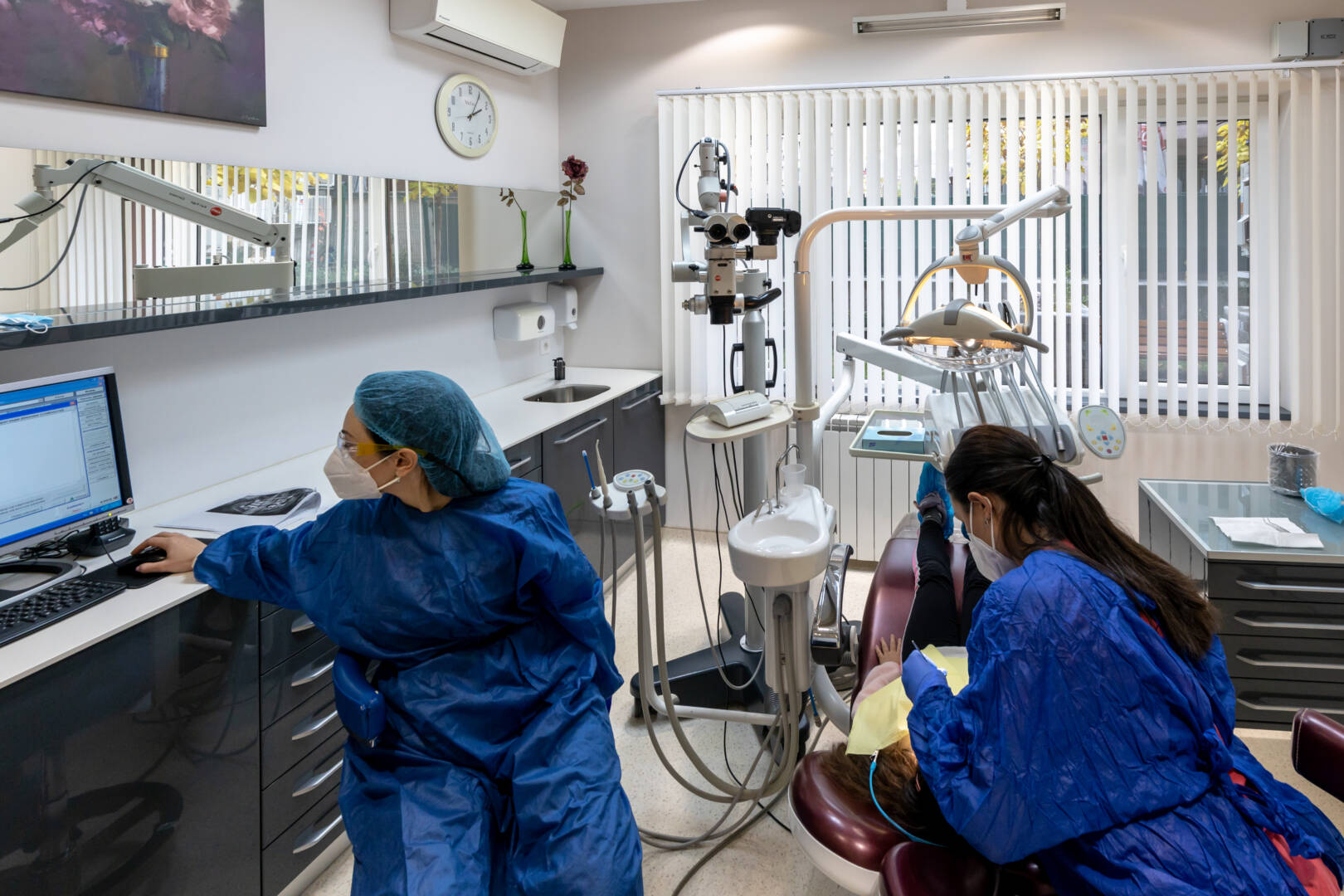Implantology
IMPLANTOLOGY is the fastest growing dental discipline. In most cases, when missing teeth need to be restored, implants offer more diverse and significantly more effective solutions to the problem. Implants replace missing teeth, including their roots, which allows the load to be transmitted to the bone almost as in natural teeth.
Advantages

- A defect in the dentition is restored, without affecting, most often completely healthy, adjacent teeth.
- Fixed structures are used instead of the less comfortable mobile.
- Titanium is not rejected by the human body – ANKYLOS implants, MIS and ALPHA BIO are made from biologically tolerable, neutral titanium.
- Restoration of function and aesthetics – Unlike other implant systems, ANKYLOS , WHAT and ALPHA ORGANIC have a large set of implants and finishing elements, which allows to cover practically all clinical cases and to achieve optimal restoration of function and aesthetics.
Frequently Asked Questions
Expiry date?
This generally depends on the patient. The main rule is to observe very good oral hygiene and to conduct regular check-ups every six months.. This will avoid inflammation, which, if not cured in time, would endanger your implant.
Can anyone be treated with implants?
Anyone with missing teeth and in good health can have implants. Contraindications may be uncontrolled diabetes, radiotherapy, etc.. In the absence of sufficient bone in the clinic "BUNAYA" bone replacement therapy is performed, which provides the required volume.
What examinations are done before implantation?
On a case-by-case basis, research is performed and the possibilities for treatment with implants are assessed. In the first place is digital radiography, giving information about the location of structures such as the mandibular canal, distance to the roots of adjacent teeth, maxillary sinus, etc.. Computed tomography (CBCT) is a more accurate method, which three-dimensionally recreates the area of interest and allows us to plan the implantation very precisely, choosing the right size and type of implant, direction and depth, on which it will be placed. The rest of the research concerns the general health of the patient, as well as some local factors such as the level of oral hygiene, condition of the teeth, presence for bruxism (night gnashing of teeth) etc.
Is the procedure painful??
The implantation itself takes place under local anesthesia within 30-40 min. as the patient feels nothing. In fact, implant placement is in most cases easier to manipulate than tooth extraction.
How long is the treatment?
Modern systems, which we use, allow us around 98% performance within 15 years. Clinical studies show, that screw implants keep crowns about 27 years. However, proper oral hygiene and regular check-ups in every 4-6 months are one of the main factors, which guarantee the success of the treatment.
Implant or bridge?
In all cases, the implant is the right choice, especially, if healthy adjacent teeth need to be prepared to make a bridge. Comfort, which the implant creates is as close as possible to that of a natural tooth, and its functional suitability exceeds 2 to 3 times that of the bridge.
How many implants are needed to replace missing teeth?
The rule is, that the number of implants corresponds to the number of roots removed. Thus, in the absence of an anterior tooth or premolar, one implant is placed, and when it is a molar - two are needed. Exceptionally, when there is no space for two implants, due to displacement of the teeth around the place of extraction, one implant can be placed, but with a larger diameter - 4, 5, 6 mm.
Are there any age restrictions??
No, an implant can be placed regardless of age. The health condition and the peculiarities of the implantation site are decisive.

